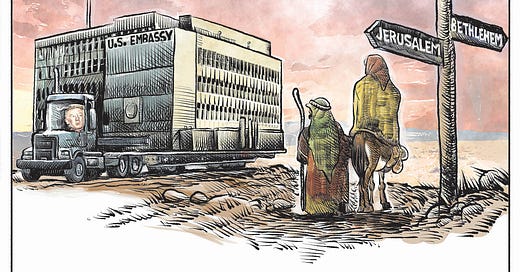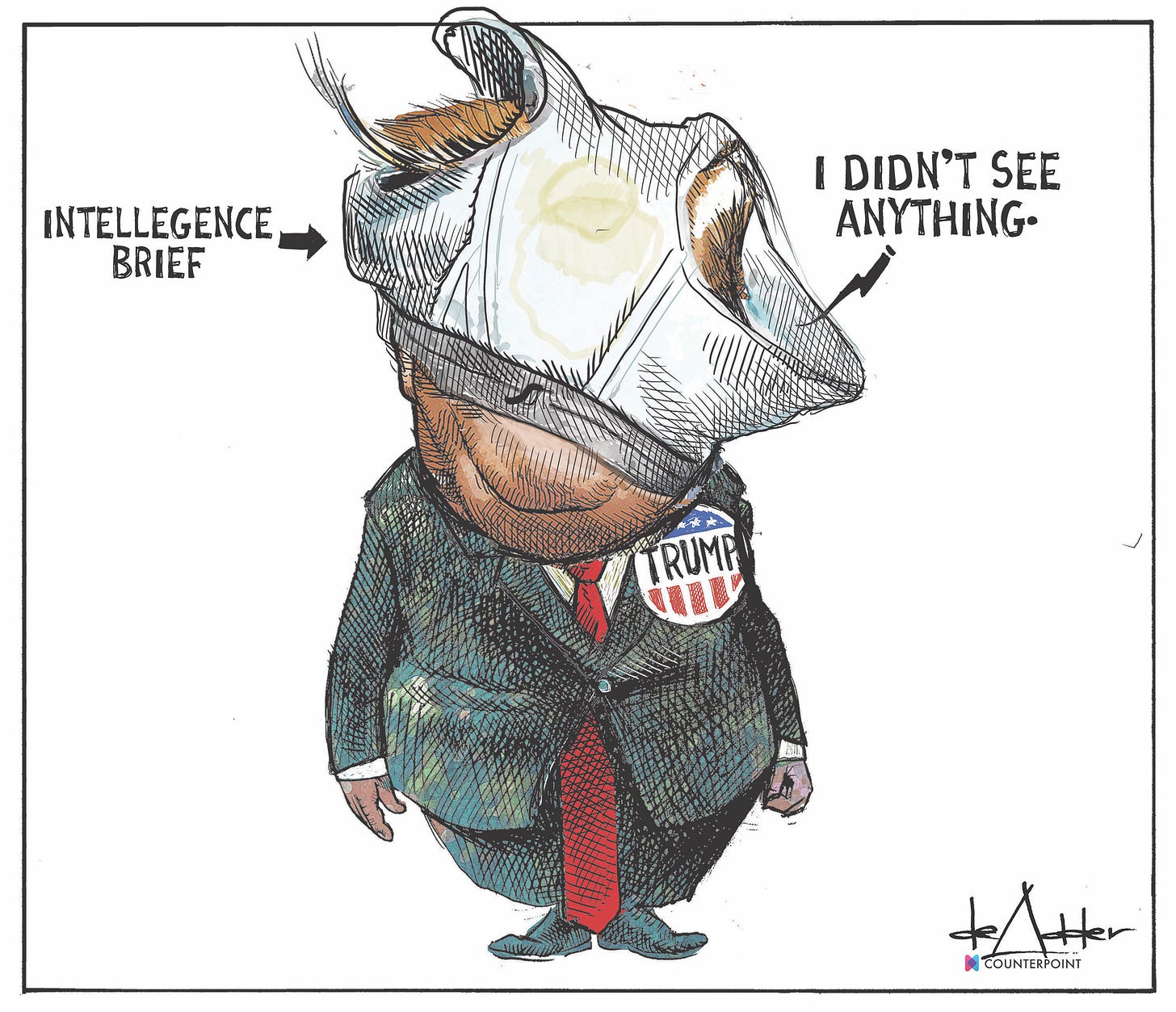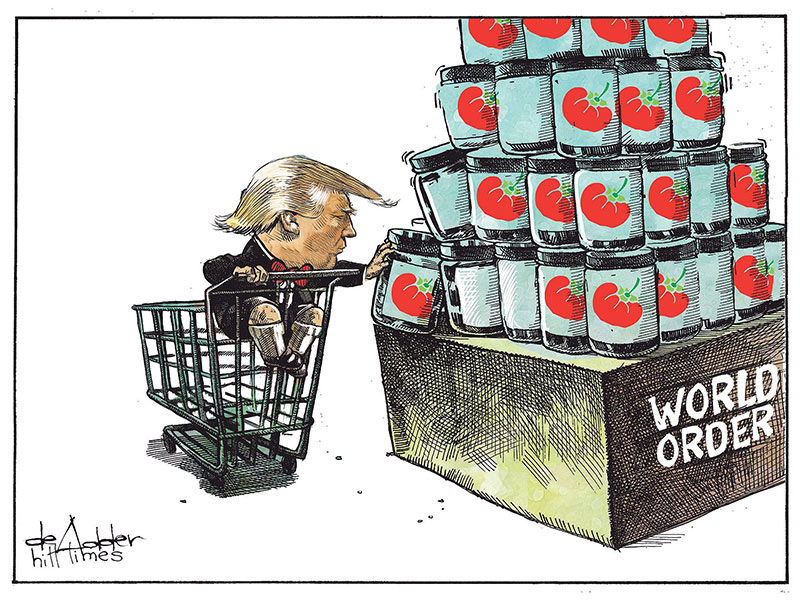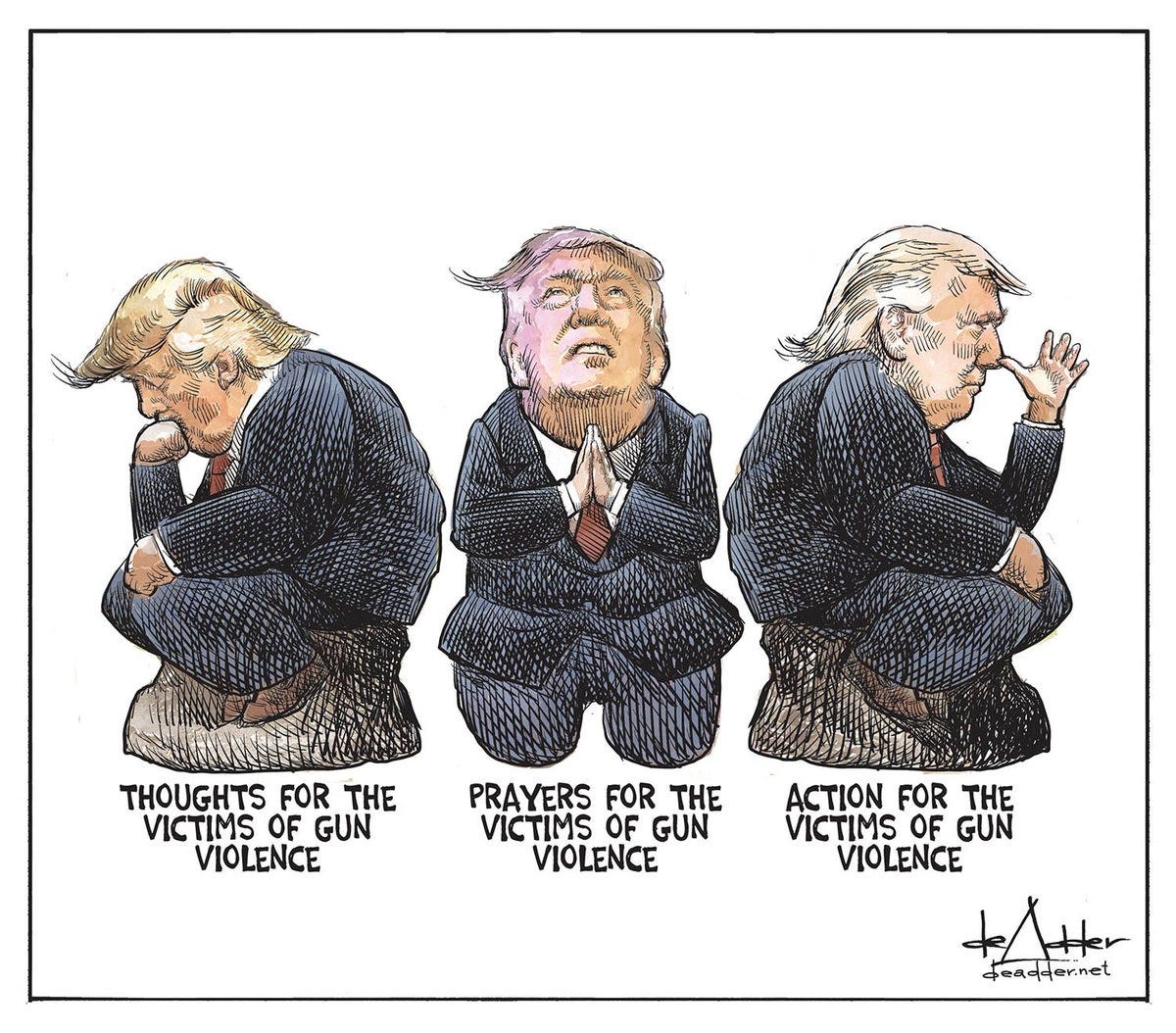Eight more things Trump did as President
I'm listing 100 things Donald Trump did as President [Numbers 37-44]
37-Recognizing Jerusalem as Israel’s Capital
In December 2017, President Donald Trump formally recognized Jerusalem as the capital of Israel, breaking with decades of U.S. foreign policy and international consensus. This decision included plans to move the U.S. Embassy from Tel Aviv to Jerusalem, symbolizing a significant shift in America's approach to the Israeli-Palestinian conflict. The move was widely praised by Israeli leaders but sparked protests across the Middle East and criticism from many global leaders, who viewed it as undermining peace efforts. Despite the backlash, Trump argued that the recognition acknowledged the reality of Jerusalem as Israel’s seat of government.
38-Military Parade Proposal
In 2018, President Donald Trump proposed hosting a large-scale military parade in Washington, D.C., inspired by the Bastille Day parade he witnessed in France. Trump envisioned the event as a display of American military might, showcasing soldiers, tanks, and aircraft to honor U.S. troops. While some supported the idea as a patriotic tribute to the armed forces, the proposal faced significant criticism due to concerns over its cost, the logistical challenges of moving heavy military equipment through the capital, and fears that it might resemble authoritarian displays of power. Ultimately, the parade was postponed and did not take place during his presidency.
39-Infrastructure Promise
Throughout his presidency, Donald Trump repeatedly promised to tackle America's aging infrastructure, often referring to an upcoming "Infrastructure Week" to unveil major plans. Despite these frequent announcements, no comprehensive infrastructure overhaul was ever enacted. While there were discussions of large-scale projects to improve roads, bridges, and public transportation, efforts stalled due to political gridlock, disagreements over funding, and shifting priorities. The lack of action on infrastructure became a running theme, with "Infrastructure Week" becoming a symbolic phrase for unfulfilled promises during Trump’s administration.
40-Net Neutrality Rollback
During his presidency, Donald Trump oversaw the rollback of net neutrality regulations, which had been established under the Obama administration to ensure equal access to the internet. In 2017, under Trump-appointed FCC Chairman Ajit Pai, the Federal Communications Commission repealed these rules, allowing internet service providers to potentially prioritize certain content, charge for faster access, or block websites. Supporters of the rollback argued it promoted market competition and innovation, while critics warned it could lead to a tiered internet, where big companies could pay for better access while smaller entities and consumers faced limitations. The move sparked widespread public debate and legal challenges.
41-1776 Commission
In September 2020, President Donald Trump announced the creation of the 1776 Commission, aimed at promoting "patriotic education" in response to what he viewed as a growing emphasis on critical race theory and negative portrayals of U.S. history in schools. The commission's goal was to highlight the nation’s founding principles and foster pride in American history, countering educational initiatives like The New York Times' 1619 Project, which focuses on the legacy of slavery. Critics argued that the 1776 Commission oversimplified history and ignored systemic issues, while supporters saw it as a necessary pushback against what they viewed as an anti-American narrative. The commission was dissolved by President Joe Biden in early 2021.
42-Cuba Policy Rollback
During his presidency, Donald Trump rolled back many of the policies initiated by President Barack Obama that sought to normalize relations with Cuba. In 2017, Trump announced tighter restrictions on travel, limiting Americans' ability to visit the island, and re-imposed restrictions on U.S. businesses engaging with Cuban military-controlled entities. The administration also reduced diplomatic engagement, restricted remittances, and labeled Cuba as a state sponsor of terrorism in its final days. These moves reversed much of the diplomatic progress made under Obama, returning U.S.-Cuba relations to a more adversarial stance, which Trump justified by citing human rights abuses and the Cuban government's support for Venezuela’s Nicolás Maduro. Critics saw the rollback as a setback for engagement and reform on the island.
43-School Prayer Guidance
In January 2020, President Donald Trump introduced new guidance on school prayer, reinforcing the right of students to pray in public schools. The guidance aimed to clarify and protect religious expression, ensuring that students and teachers could engage in voluntary prayer without facing discrimination or censorship. Trump framed this as a defense of religious liberty, emphasizing that faith should not be suppressed in public education. Supporters saw it as an important reaffirmation of constitutional rights, while critics argued that it could blur the line between church and state and potentially lead to increased pressure on students to participate in religious activities.
44-Space Force
In December 2019, President Donald Trump officially established the U.S. Space Force as the sixth branch of the military, marking the first new military service since 1947. The Space Force was created to address the growing importance of space in national security and to protect U.S. interests in space-based technologies like satellites. Trump positioned the initiative as critical to maintaining American dominance in space, particularly in the face of increasing competition from countries like China and Russia. Trumop has been accused of weaponizing space.













Great work illustrating the actions and effects of this horrible human being.
When Biden won there were several news clips with tons of papers he was signing. It's a lot more clear now why that was the case.